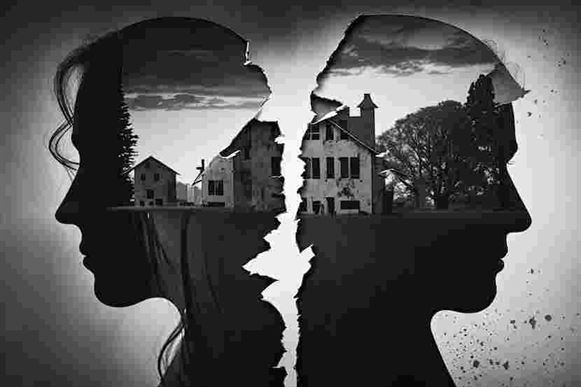
Understanding the Impact of Childhood Emotional Neglect

Childhood emotional neglect is not a disorder in itself but can lead to various problems. It is a type of childhood trauma that can affect a child's development and well-being. This form of trauma occurs when a parent or caregiver fails to provide basic emotional support, nurturing and care for their child. This often comes from well-meaning parents who have difficulty with their own emotions and think that it will “protect” the child if they do not show their feelings.
If you were emotionally neglected as a child, it may have caused long-lasting effects on your self-esteem and ability to trust other people as an adult. If you're concerned about being emotionally neglected as an adult, there are steps you can take to protect yourself from potential harm. Researchers believe that as many as two-thirds of people experience some form of childhood emotional neglect. Let’s understand this further.
What is Childhood Emotional Neglect?
As mentioned above, childhood emotional neglect is a form of child abuse that occurs when parents fail to provide their children with the necessary attention and affection they need to flourish. This type of abuse can have serious long-term effects on your self-esteem and relationships.
The signs of childhood emotional neglect include:
- You feel unloved or unwanted by your parents or caretakers.
- You have difficulty forming friendships because you don't know how to express yourself in positive ways, which leads people to think negatively about you and avoid you.
If left untreated, childhood emotional neglect can cause depression, anxiety disorders, drug use problems and eating disorders as well as other mental health issues later in life—and it’s important for everyone who has experienced this form of abuse during their childhoods (or even adulthood) to seek help from a qualified therapist who can guide them through the process of healing from its effects.
What Can Cause Neglect?
There are many reasons why a parent may neglect their children.
- The parent has mental health issues, such as depression or anxiety. This can cause them to withdraw from their child and not pay attention to them or notice the ways in which they need support.
- The parent uses alcohol or drugs, which could prevent them from being present in their children's lives and providing emotional support at home.
- The parents have physical health problems that make it difficult for them to care for their kids.
- They may also have financial issues that prevent them from providing basic necessities for their family members on a consistent basis—such as food or clothing—and this can take away from time spent with children during the day (or night).
How Does Emotional Neglect Affect Children?
In the early stages, emotional neglect can cause a child to feel insecure and unloved. They may feel abandoned and unwanted as they grow older because their parents or caregivers don't provide them with the love and attention they need. As children mature into adults, they may still struggle with feelings of worthlessness, rejection and abandonment due to their childhood experiences of emotional neglect.
How Does Childhood Neglect Affect Adults?
Childhood emotional neglect can affect people in a variety of ways, especially when it comes to relationships. As an adult who has experienced childhood neglect, you might feel like no one understands you, so it's important to find people who do understand and accept you for who you are. You may also have trouble trusting others because of your lack of trust in the past.
If this sounds like something that resonates with you, don't worry—there are support groups available that can help guide you through the process of healing and self-acceptance. Having someone else in your corner will help remind you that there are people out there who care about what happens to us as children!
What is the Treatment for Childhood Emotional Neglect?
If you are experiencing the effects of childhood emotional neglect, the best way to deal with it is to get help. Sometimes we need professional help or new methods in order to overcome our issues.
Take action - talk to a therapist, get a diagnosis, find support groups (they exist online), talk to friends and family members about what you’re going through – whatever works for you!
How is Childhood Emotional Neglect Diagnosed?
The diagnosis of childhood emotional neglect is based on a clinical interview. It's important to note that many people who have experienced childhood emotional neglect don't even realise that it happened to them as children, so they may not be aware that they were neglected or think that the experience has had an impact on their life. This can make it difficult for someone experiencing symptoms of childhood emotional neglect to seek treatment.
There are different causes of childhood emotional neglect, and not all children will be affected or experience symptoms. Although this can have a significant impact on a person's life, there is treatment available to help people cope with the effects.
Articles
Build your awareness and get inspired with our researched articles on how you can strengthen your well-being
Popular Topics
An OTP has been sent to the email address
provided.
Please check your Inbox and Spam folders.

What Would You Like to Speak with a Specialist About?
Mental Fitness Journey starts Now!
Chearful Connects you with Top-tier Qualified Wellness specialists for the Price of a cup of Coffee!

Next Steps
- A Client Team member will reach out to you to schedule a session with the most suitable specialist.
- You will receive an email with a 10% Discount Code* for your 1st session.
- We invite you to Explore the Platform & Sign Up today! *Upto a maximum of $10 discount on a session purchased




 800 Read
800 Read

.jpg)












